Early Learning Centre
Lauren Hughes, ELC Director

Early Learning Centre
Lauren Hughes, ELC Director
| Thur 7 Aug | 2026 Preschool Parent Information Night |
| Mon 18 Aug - Fri 22 Aug | Book Week |
| Sat 23 Aug | ELC Open Day 10am - 12pm |
| Mon 25 Aug - Wed 27 Aug | Parent-Teacher Interviews |
| Thurs 9 Sept | BP ELC - Year 6 Father's Day Breakfast |
Our Emmaus ELC – Preschool children embarked on a day filled with exploration, discovery, and connection with nature at the beautiful Adelaide Botanical Gardens.
Our excursion began with a self-guided tour through the gardens, where little feet wandered along winding paths and curious minds were sparked by the natural world around them. As children explored the lush environment, discovering fascinating plants, colourful flowers, and spotting a ‘bin chicken’ (Ibis) and many insects, they partnered with their teachers in shared wonderings. Together, they posed thoughtful questions, engaged in rich conversations, and co-constructed meaning from the beauty and complexity of nature.
We learnt about several types of plants:
We found these facts very interesting!
Following our morning stroll through the gardens, we walked over the bridge and past the water fountain, where the children participated in the engaging Little Sprouts Kitchen Garden program. Divided into three small groups, the children had hands-on experiences that supported their learning through play and inquiry.
Our teachers Polly, Mak, Teresa, James and Ella each taught us about a different aspect of the garden. We learnt about worms and how important they are for our garden and what they like to eat.
As we explored the garden, we were lucky to harvest different varieties of lettuces, beetroot, Romanesco cauliflower, spinach, coriander and different coloured chard/silverbeet from the soil in the garden beds.
We explored different types of seeds, discovering that a coconut is the largest seed, before planting our own peas in planter cups to take back to ELC to water and watch grow. The kitchen garden was full of growing fruit and vegetables, green grass and there was so much to discover!
It was a joy to see the children working together alongside their educators getting their hands dirty, building knowledge, and deepening their understanding of sustainability and the food cycle.
After all the hard work, we gathered on the grass for a peaceful lunchtime under the trees and the shade of the classroom hut in the garden. This special moment of coming together allowed everyone to relax, share stories from the day, and reflect on the many things they had seen and learned.
As we boarded the bus to return to the ELC, tired but happy faces told the story of a day well spent. This excursion nurtured the children’s natural curiosity and strengthened their connection to the world around them.
There was much excitement that afternoon as we opened our box of harvested goodness and talked about how we would enjoy using them to cook different recipes to eat at ELC soon. We have put our potted peas outside to get watered and receive sunlight; 2 things we know that will help them grow – we can’t wait to have them sprout and produce fruit for us to eat!
Our little gardeners have also been good stewards by taking care of our Preschool garden, watering it daily and we are beginning to see our spinach, parsley, spring onion, lettuce and celery grow! We are eagerly waiting to harvest and enjoy these tasty spoils!
As we foster opportunities for children to investigate and explore nature and the natural environment and to explore the basic needs of living things and how to protect them, we are building their capacity as socially responsible citizens, nurturing their innate interest in the world around them.
We are grateful for our little learners and for the enriching experiences that days like this provide.
Mrs Lisa Bennett, Mrs ShinYie Chew, Mrs Ellice Kalialaha, Mrs Kelsey Nicol and Miss Zoe Anemouri
Preschool Team
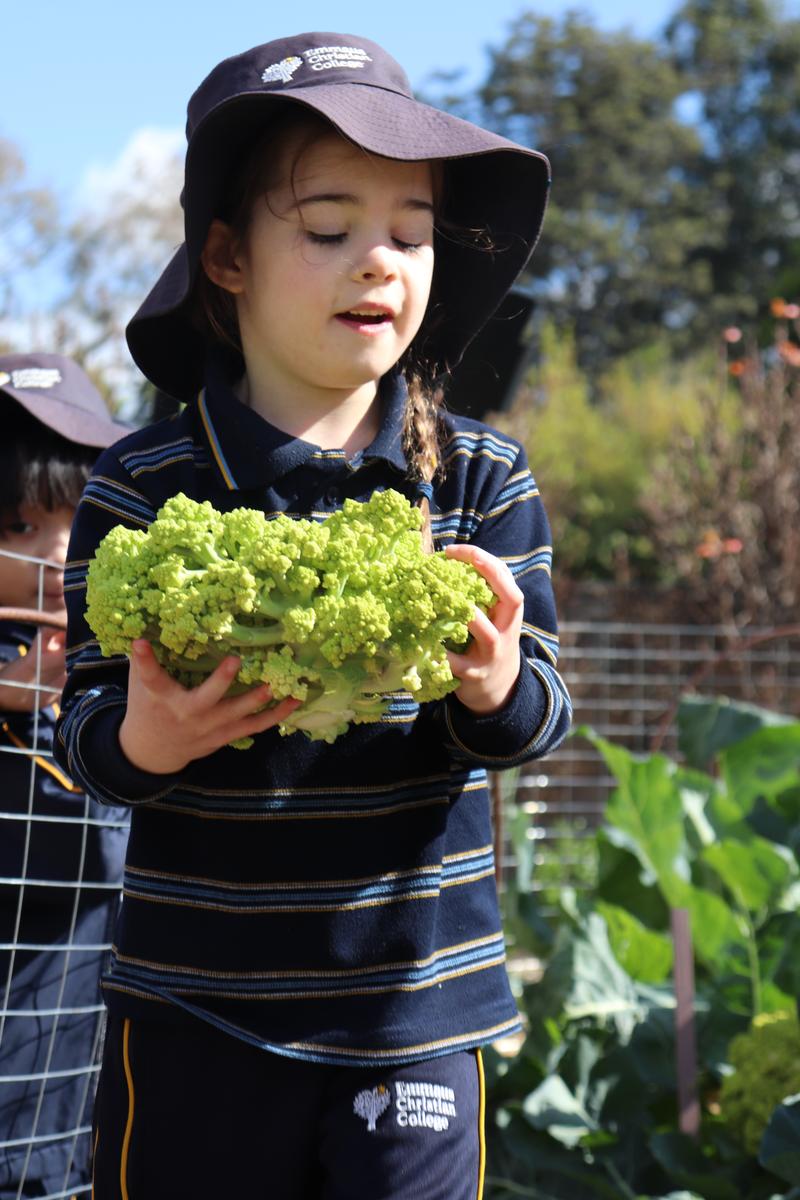
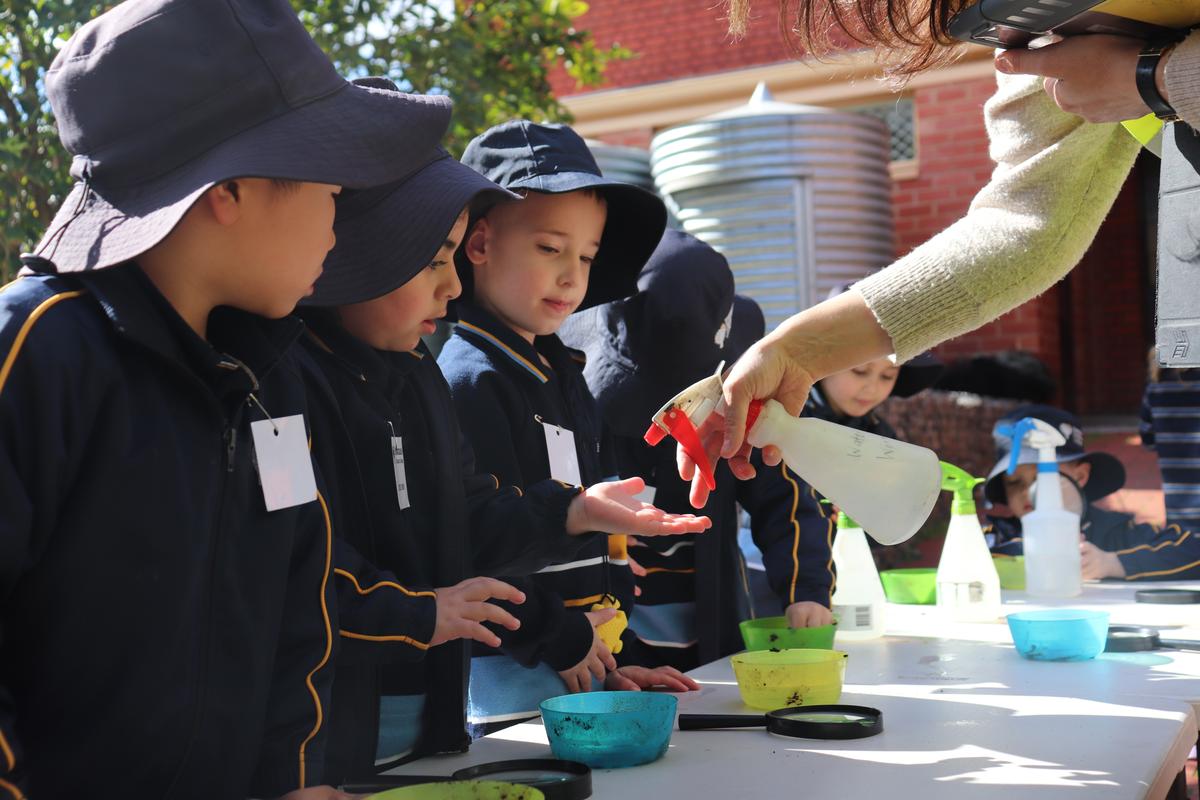
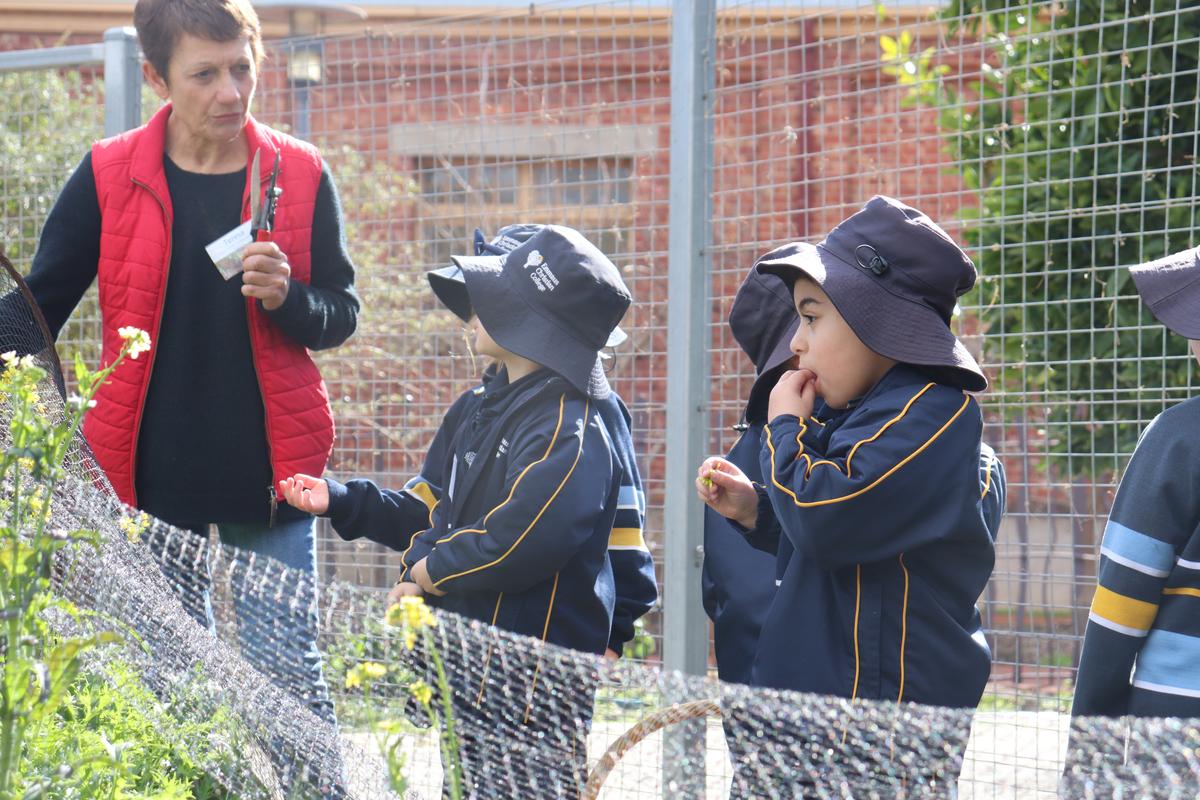
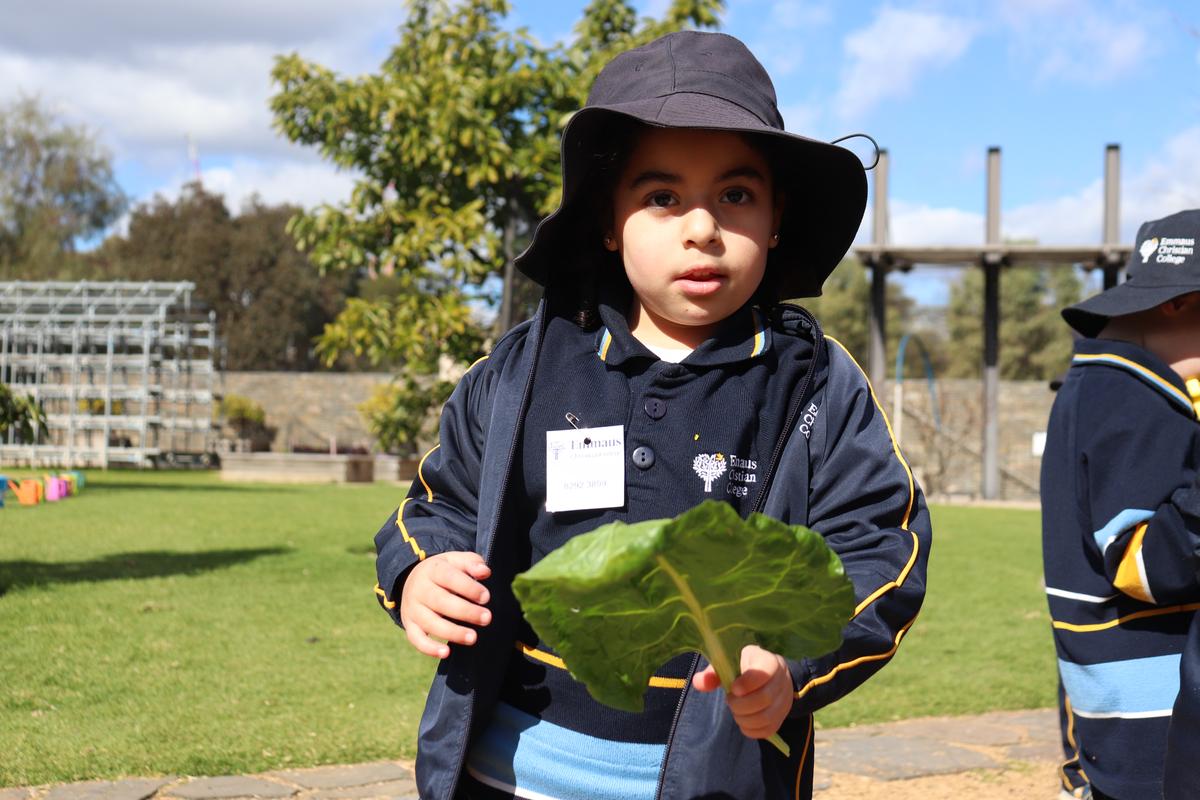
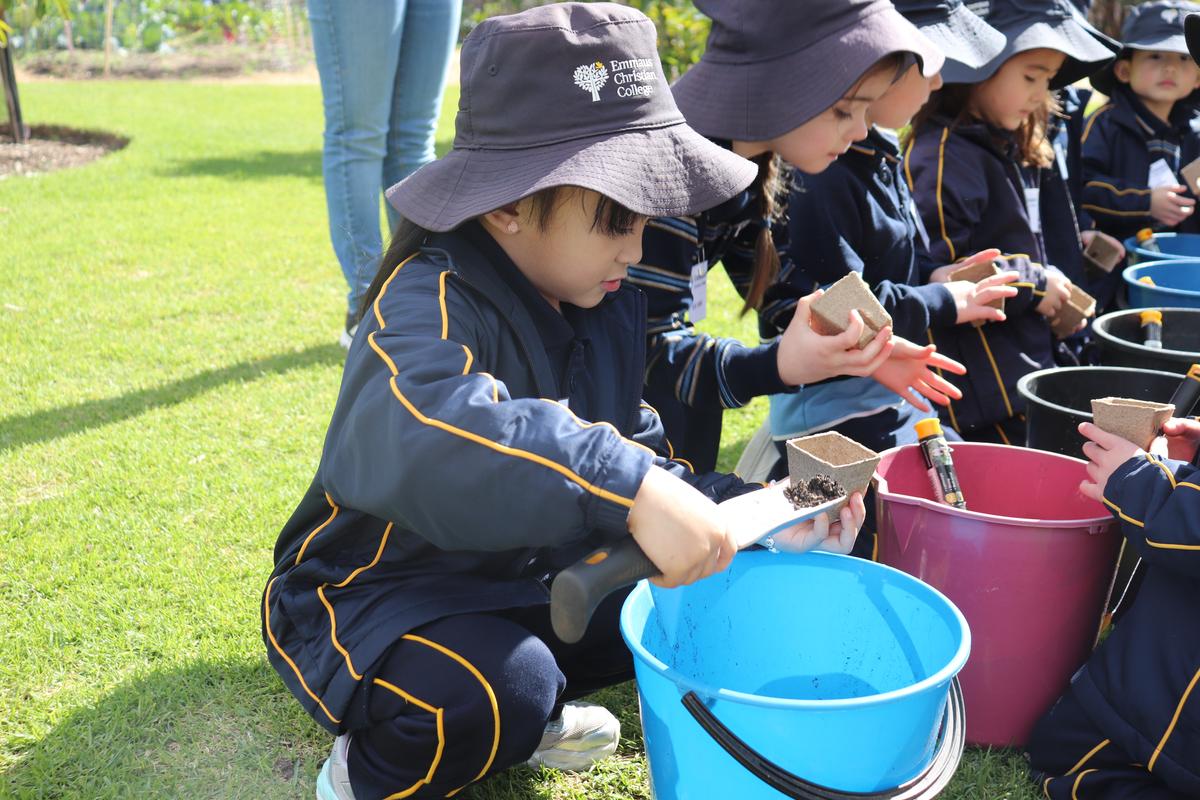
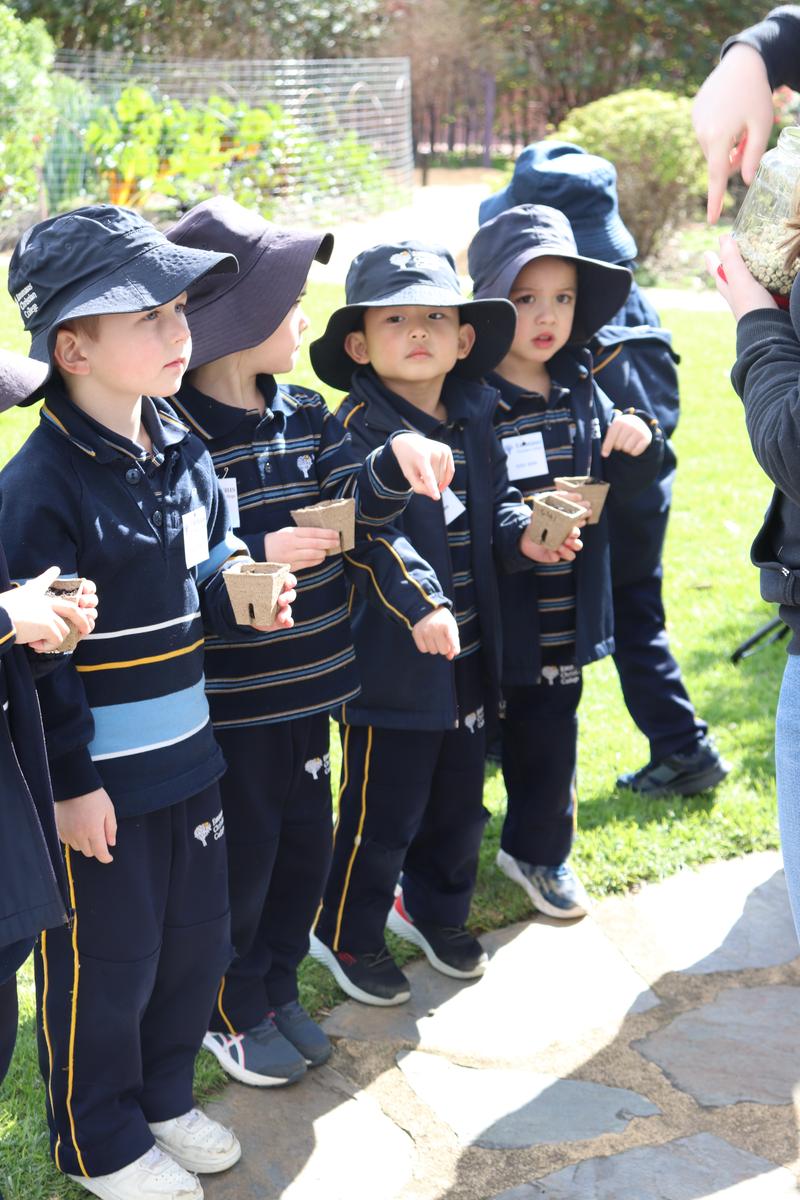
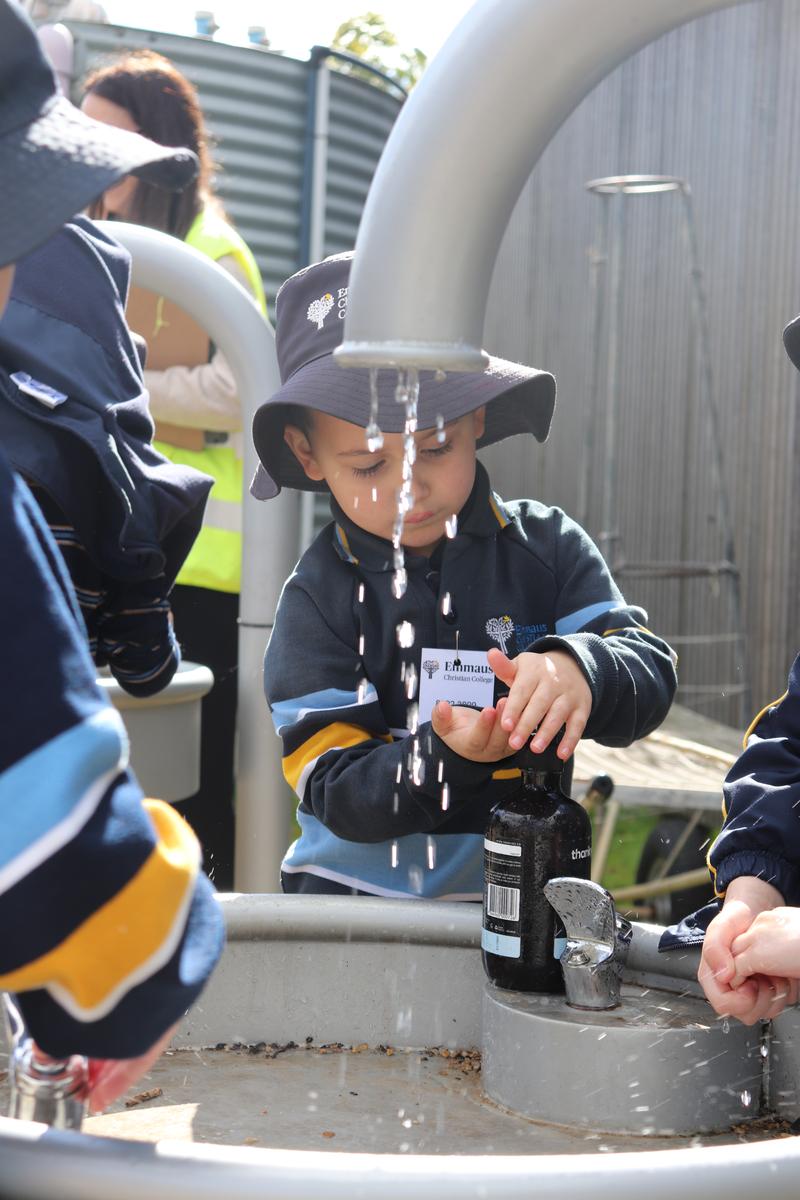
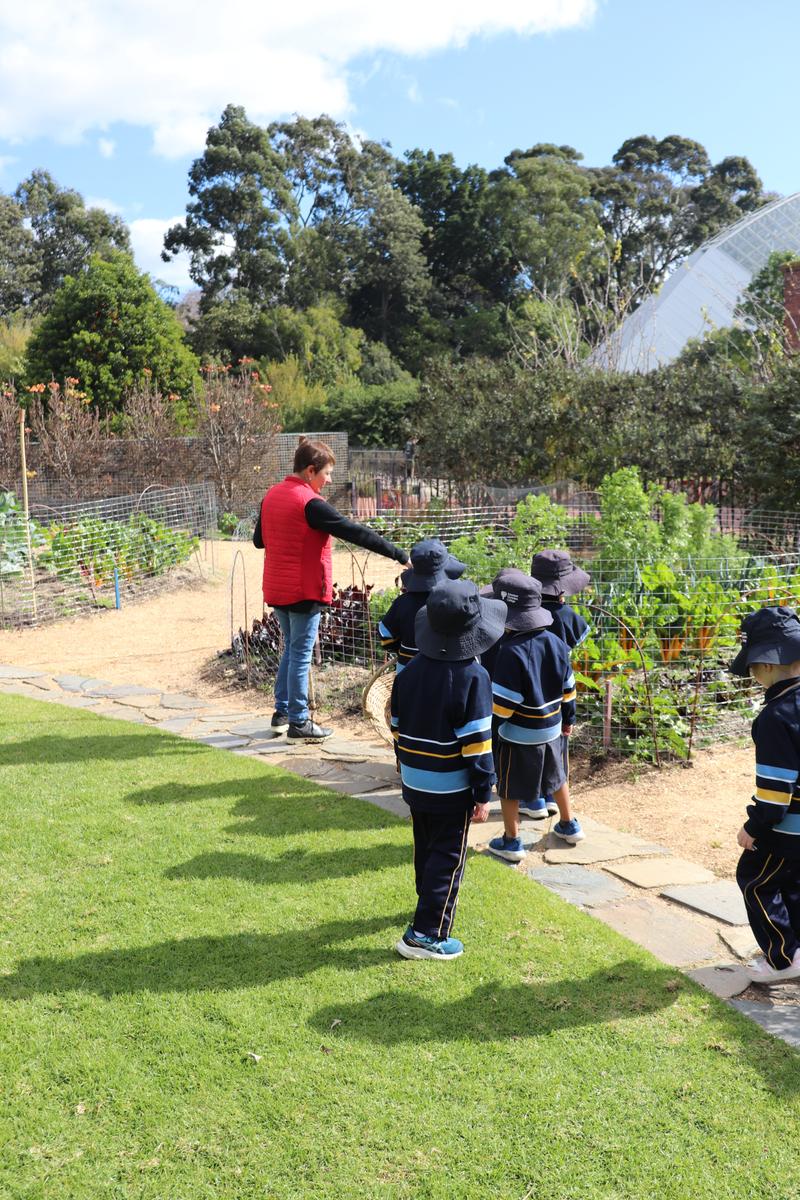
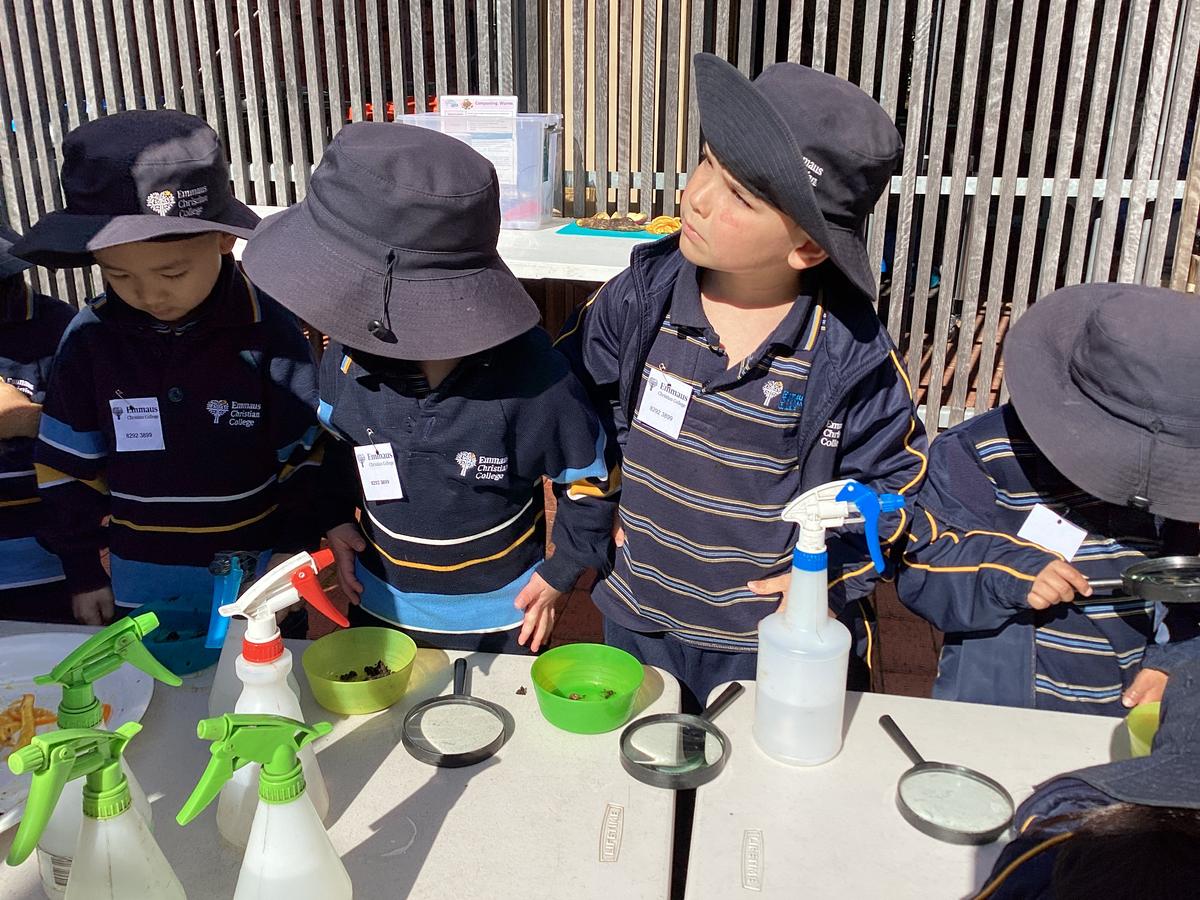
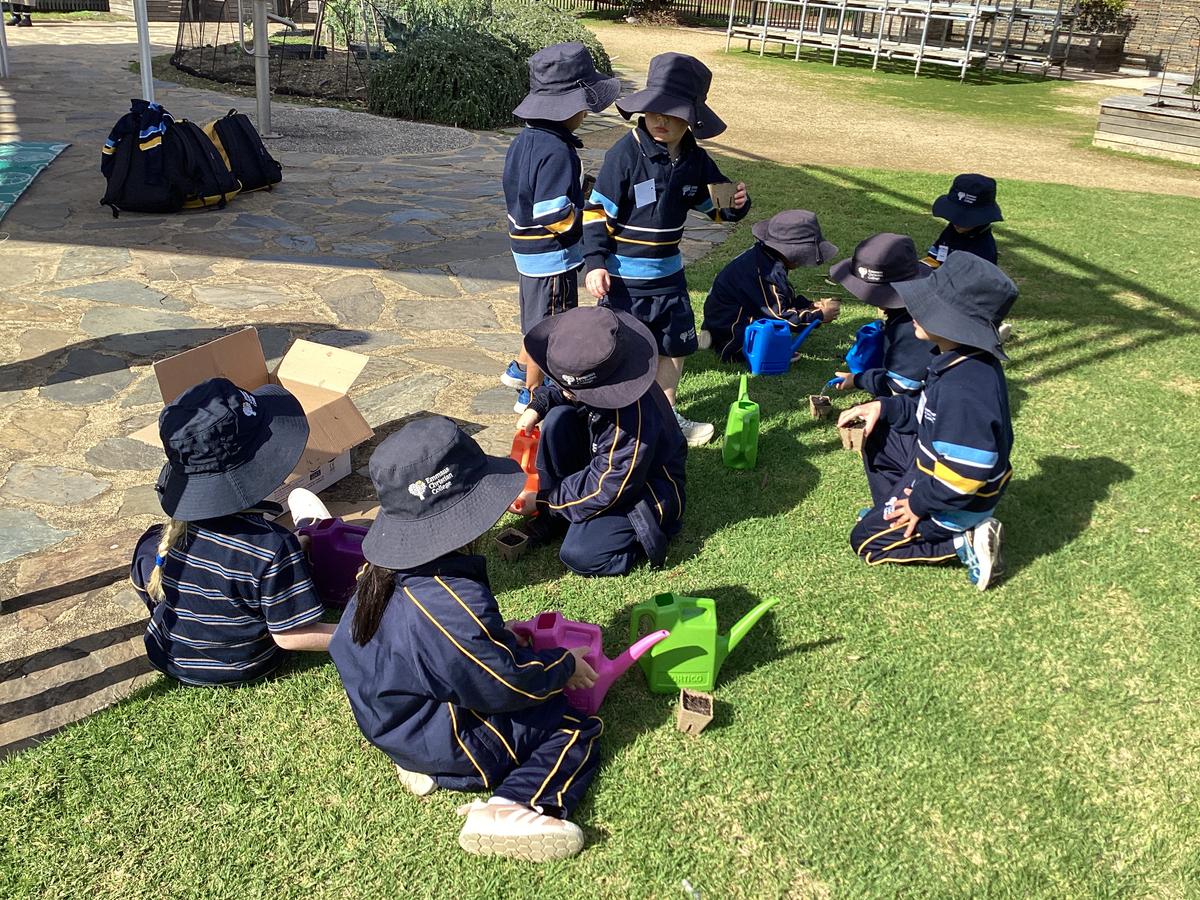
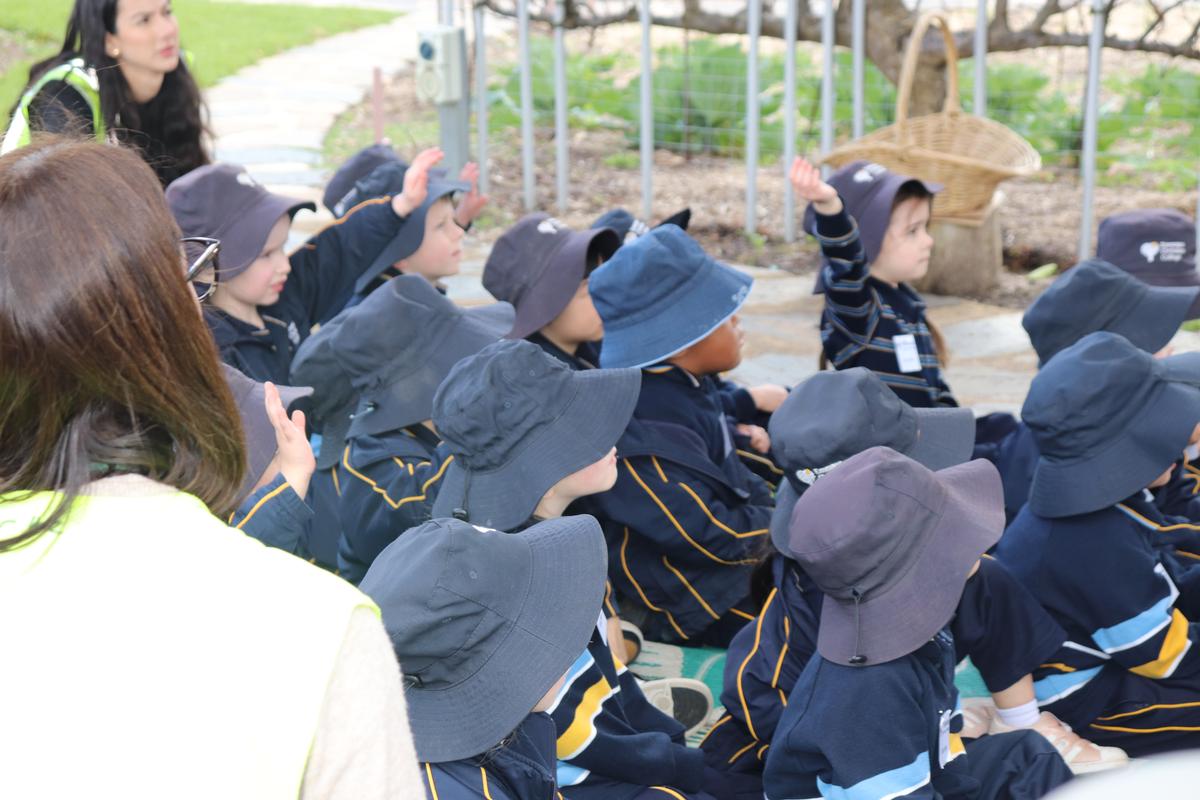











Links to Learning
EYLF OUTCOME 2: CHILDREN ARE CONNECTED WITH AND CONTRIBUTE TO THEIR WORLD
Children become socially responsible and show respect for the environment
Little Sprouts Garden Kitchen
“An educational visit to the garden provides a perfect opportunity for children to learn through direct, hands-on experience. They are able to immerse themselves in the kitchen garden environment through participation in a range of activities which utilise play, a sense of wonder and imagination, inquiry and the use of all senses”
Little Sprouts Kitchen Garden Education Program
Aboriginal Plant Trail
Key concepts:
Students will investigate a series of plants which have numerous traditional uses. Students are encouraged to observe, analyse, inquire, record, hypothesize and connect knowledge they already have with new learnings.
Adelaide Botanic Gardens Aboriginal Plant Trail